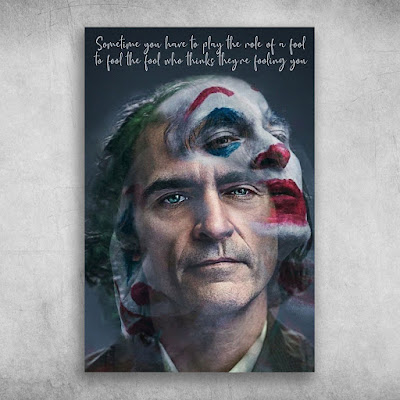A fool takes the world at face value. As a result, he and his money are soon parted. Why this is bad is hard to say. People being parted from their money often seems to be what America, as the commercials say, is all about.
In fact, when people and their money are not parting at a fierce pace, Wall Street weeps and economists foresee misery until millions resume the fool's readiness to be parted from his money. ''Shop Until You Drop,'' urges a popular bumper sticker extolling the joys of parting from money.
Weighing this evidence, a fool - he takes the world at face value, remember - will say, ''America is a fool's paradise.''
If he does, however, he had better make sure he is wearing a fool's cap, bell-tipped kewpie shoes and a Jack of Hearts doublet. This will assure everybody that he is a professional who says fool things only to entertain us and that he really knows better, and is, therefore, underneath his merryman suit, just as serious as the rest of us.
We may even flatter him about the value of his ''wit and wisdom,'' as kings and toffs in days of old are said to have kept fools on the payroll for the jewels of wisdom they disguised in nonsense and insults.
If, on the other hand, our fool says, ''Logic proves that America is a fool's paradise,'' and appears to believe it - to really believe it! - he receives no mercy but only contempt and abuse.
The popular word for him is ''cynic.'' What we mean by ''cynic'' is a person ''who is down on everything,'' or ''who never sees the good in anybody.'' To put it back into Greek, a misanthrope.
Ambrose Bierce once defined cynicism as a ''defect of vision which compels us to see the world as it is, instead of as it should be.'' Not surprisingly, Bierce is remembered today mostly for his ''cynicism.''
The problem of the cynic arises from a refusal to compromise. He has begun like all fools and children (which are the same thing) by taking the world at face value, only to be disillusioned by the inevitable discovery that the world is more complicated, more interesting and more treacherous than a perfect world ought to be.
There is a sort of folk wisdom about the importance of lowering the child's/fool's expectations before they cause dangerous loss of contact with reality. The rituals of April Fool's Day serve this purpose.
''Your shoelace is untied,'' a 6-year-old says to his favorite playmate, and laughs, crying ''April fool!'' when the playmate bends to look down.
The victim is taught that there are risks in taking the world at face value, that sometimes you can't even trust your best friend, that gullibility can lead to humiliation. It's painful to be the butt of the joke. Later in life, the joke may be crueler; the laughter, betrayal; the price of gullibility, contempt.
Better to learn young that the world is not to be taken at face value. Better to be a little skeptical. Better to learn in childhood to live by a few old saws, even though they be of dubious validity.
Somebody who learns at age 6 that ''A fool and his money are soon parted'' has a chance, for better or worse, of growing up to be another Joseph P. Kennedy, who, when asked what made him take his vast winnings out of the stock market before the crash of 1929, replied, ''Only a fool holds out for top dollar.''
Such wisdom often saves its possessor from falling prey in later life to the despicable charge of ''cynicism.'' It does so by preparing him to confront life in the ''sincere'' mode so highly respected in America.
The ''sincere'' person is neither fool nor cynic. He knows the world is not always perfect. Not always. The ''always'' is a vital qualifier if you are a ''sincere'' person, because it allows for the possibility that sometimes the world is, indeed, perfect.
To be ''sincere'' is, among other things, to believe in the possibility of life's perfect moments, and it is this belief that keeps scientists toiling in the laboratory, poets slaving at the typewriter, young people treading to the marriage altar and television commercials pouring through the parlor.
Yes, the world may be flawed, but things can still be perfect once in a while if we keep our eye upon the doughnut and not upon the hole, if we never succumb to ole devil cynicism but, instead, are always truly sincere.
Fools and cynics are our romantics, either childish or disillusioned. Sincerity, as sincere people say, is where it's at. Thus the wisdom of the advice in the Flanders and Swann song: Always be sincere, whether you mean it or not.
.
And by a prudent flight and cunning save A life which valour could not, from the grave. A better buckler I can soon regain, But who can get another life again?
Archilochus
Tuesday, May 10, 2022
The Problem of the Cynic
Russell Baker, "OBSERVER; A Little Sincerity, Please" (4/1/89)
Subscribe to:
Post Comments (Atom)
.png)

No comments:
Post a Comment